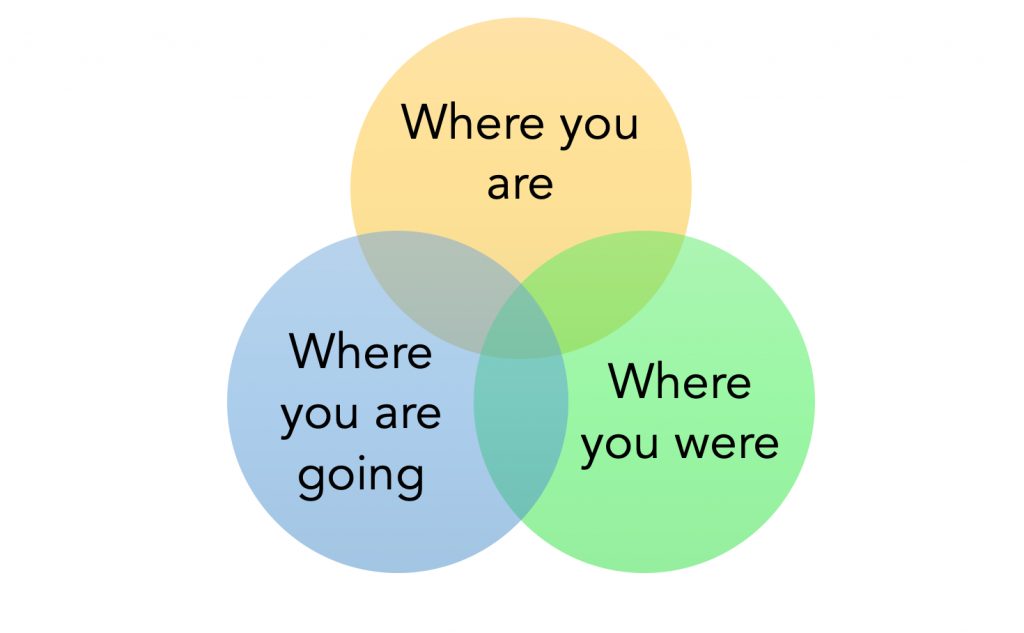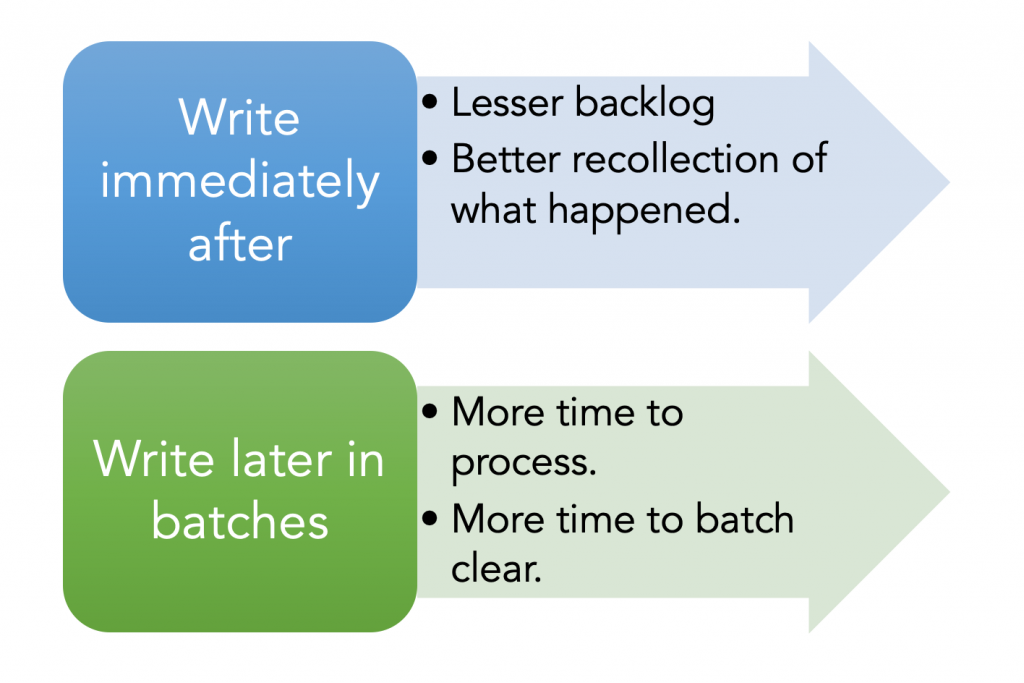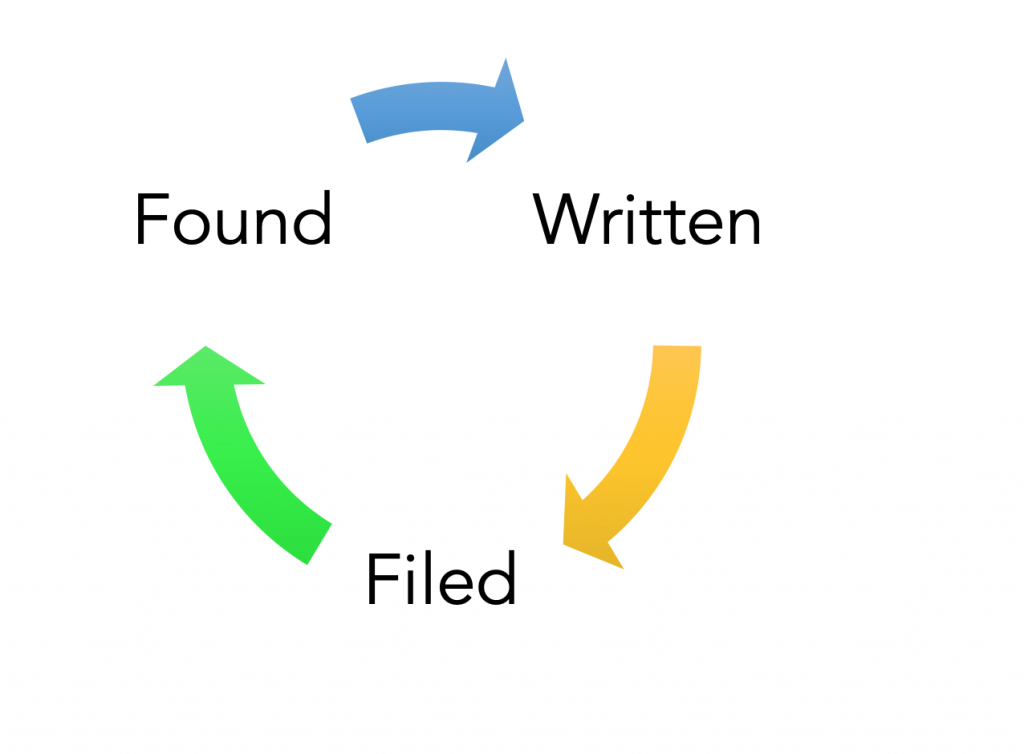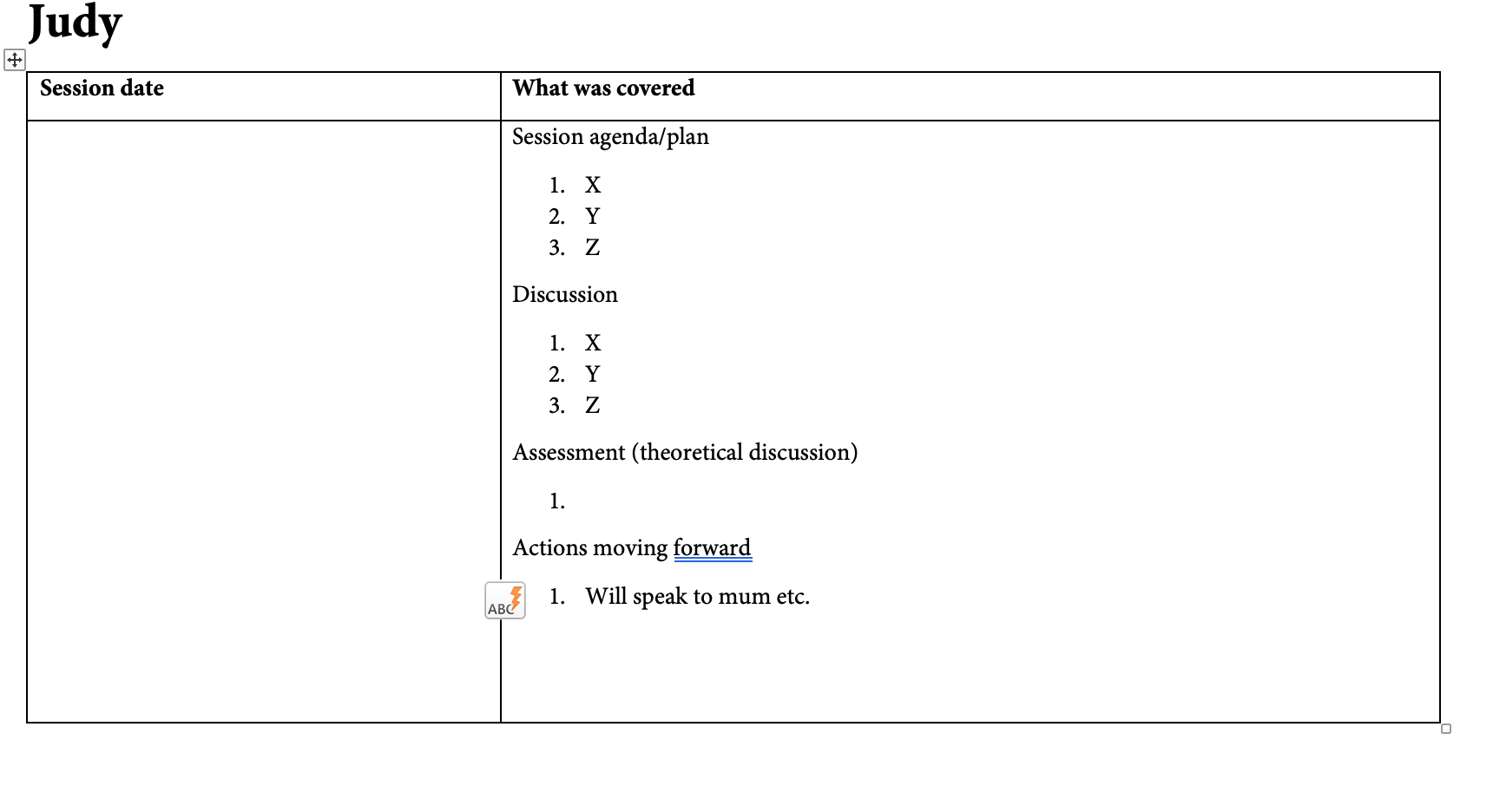When I was in university, we once had a strange assignment.
We watched a video twice, and we were told to write about what we saw. We were also told to write about our opinions.
When I look back, I realised that was an exercise to teach us how to write good case notes in social work.
Case notes are a part of every social workers’ life.
But before you look at how to write better case notes, you need to know why case notes are even important.
This is part of a 2-part series on case notes.
- How to write case notes
- Examples of case notes
 You don’t have to feel like this when writing case notes.
You don’t have to feel like this when writing case notes.
Why write case notes?
It builds a better understanding of the client.
During my first shadowing assignment as a social work student, I went to a hostel for people who were homeless.
My first day was spent reading case notes.
Initially, when I was asked to take out the case files of different clients at the home, I thought: Gosh, I came all the way here….To read case notes?!
You might find that a really boring exercise.
But as I read through the case notes, I found out the story of the client. His narrative. What had happened to him. How to help him.
It built a picture of the person I was helping. It helped me to see how to move forward in helping.
It forces you to reflect on what has happened, what you’ve done, and how to move forward.
When you write case notes, you are forced to write down what happened.
You’re asked to write down what you’ve done to intervene.
A good case note would include an assessment of what has happened based on your professional expertise.
Then, you can suggest how you move forward.
This clarifies how to move forward. When you’re working with complex cases, sometimes it can feel like you’re lost in the jungle.
The case note clarifies that.
Case notes help others to take over.
You might not work with your client forever. The case notes help you to pass on information to the next social worker involved.But it’s not just about the information you pass on.
It’s about the insight.
The next social worker will not understand the specific nuances of the client as well as you. But you can.
When you suggest ways that have worked for the client (such as face to face meetings, or phone calls etc.), you give the social worker a better footing.
It’s like that game where you are running with an egg in a spoon. It’s time to pass it over to the next person.Case notes help to prevent you from dropping that egg.
But before we go onto how to write good case notes, we need to understand what good case notes even are!
What are good case notes?
Accurate
Good case notes are accurate. They are an accurate representation of what happened, rather than what you think happened.
This is an important distinction.
Effective
Essentially, an effective case note is a combination of where you were, where you are, and where you will be going.
 The elements of good case notes
The elements of good case notes
Where you were
- This means that a good case note would paint the history and context of the client you are working with.
- What happened in the past that resulted in the present situation?
- Are there things that have informed your actions as you move forward? Why is this so?
Where you are
- What are you doing with your client currently?
- What are your actions?
- What is the situation?
Where you will be going
- What are your future plans for this client?
- What do you hope to achieve with this client?
- What does the client hope to achieve?
- What needs to be done for this to be achieved?
Neutral
Many times, I’ve been let down by case notes that have painted quite a negative picture of the client.
However, when I meet him for the first time, I realise that he is not what the case notes painted him out to be.
Being neutral is about separating fact from opinion.
When you are stating an opinion, you need to be clear that you are.For example, when stating an opinion or your own personal assessment, you might try:
- From my assessment, I can observe that X struggles with issues around self-esteem and self-worth.
- **I thought ** this showed how angry X was with his mother.
- ** I believe** that X is lying when he says that he is not angry with his friend for cheating him of his money.
How to write good case notes
Here we go.
Have a method.
You might find case notes to be the most frustrating part of your job as a social worker. That’s understandable. After all, there’s so many clients you work with, so many sessions you have with them, and so many things you need to do!
Case notes? GOSH!
Not more!
 Not more case notes?!
Not more case notes?!
It’s vital that you have a process to keep track of the case notes you’ve written and haven’t written.
 The two methods of writing case notes.
The two methods of writing case notes.
You need to have a system which you are comfortable with.
Broadly, there are two ways of doing case notes.The first is immediately after you have a session with a client.There are benefits to this.
Firstly, you are better able to remember what has happened.
Secondly, you also stop yourself from building a backlog of case notes you haven’t written.
However, doing this prevents you from clearing other more urgent work that arrives in your inbox.
As social workers, you are probably handling multiple crises a day. Having the luxury to sit down undisturbed after you meet your client to write your case notes is probably … yes, a luxury.A luxury you don’t have.
Batch your case note writing every 3 days
The other option is to have a batch of case sessions you’ve had and then clear them regularly.I use this method.
Usually, I clear it once every 3 days.
Doing this is helpful because it helps me to be more efficient with my time. I find myself concentrating better when I have a block of uninterrupted time to write the case notes.
Just as you wouldn’t do your laundry one at a time, you might find it helpful to do it in batches.
Secondly, it’s helpful because my mind gets to chew on what happened. Often, I find myself struggling to come up with proper assessments and further actions. Why?
I haven’t had time to think through it.Putting these clients on the back burner in my mind helps me to think through what I should do moving forward. Having some distance from it also helps you to think more clearly.
But there are negatives.Of course, you are likely to forget some key events in your session if you write it later.That’s why I make sure that I write the case notes in 3 days after the initial session.
These are the two methods.What’s most important is that you find a way that fits you. Try one of these methods, and see which suits you better.How do you know?you will
Systemise the method.
You need to have a system.
Especially when you need to do so many other things.
You need to have a system of writing your case notes, filing your case notes, and making sure that they are easily found.
You don’t want to be scrambling for more case notes.
Different organisations have different ways of filing too.
Some may have an electronic database of clients and case notes attached to them. Others might still be using physical files.
There are different systems that work for different people.What matters is the principle.You need to make sure that your case notes are:
- Written
- Filed
- Found

Here’s a system that works for me.You might want to try it.
Written
- After every session with a client, I will record it in my diary.
- Then, I will write the case notes within 3 days.
- After this is done, I have a tick beside the schedule on my planner.
Filed
- After I’ve written the case note, I need to file it electronically.
- After this is done, I will put another tick next to the planner.
- At the end of every week, on a Friday afternoon at 3pm, I will look through the sessions on my diary.
- I see if there are two ticks next to every entry.
Found
- I write my case notes on a Microsoft Word document to format, autocorrect, and keep track of it.
- This means that I can refer back to it whenever I need.
- It also makes sure that it can be easily found with a simple Ctrl-F function.
Use Microsoft Word to write it, before you upload it on your client management system.
I still prefer to use Microsoft Word to write my case notes.
What I recommend is two things:
Format your client’s name with styles under Microsoft Word
- Format your client’s name so that when you open the navigation panel, you can find their names easily.
- This is necessary so you don’t waste time scrolling through 92 pages of case notes just to find that one client you missed out. You may think this is a joke, but with average case loads being around 32 in Singapore’s Family Service Centre, you might really have to work through that many.

Format the header of each client’s name so that you can find them easily in the navigation panel
- This is necessary so you don’t waste time scrolling through 92 pages of case notes just to find that one client you missed out. You may think this is a joke, but with average case loads being around 32 in Singapore’s Family Service Centre, you might really have to work through that many.
Use this format when you write your case notes
In your case note recording, include the format as follows.
This helps you to keep the case note focused on what the plan was, what was covered during the session, and what will happen moving forward.

Record every session with a client in your diary.
This is a simple backup to remind you of what you have done in the past.
After every session with a client, I will jot it down in my planner to remind me of what I have done.
Dictate your case notes.
You might be tired of writing sometimes.Try dictating it. Go to Microsoft Word.
At the menu bar, you will see Dictate. Try it.
Doing good casework involves writing good case notes. What more can you you do to make them better?

Separate observation from opinion in your case notes.
What you see is not the same as what you think you see. Therefore, it’s important to separate your opinion from your observation. When you start your case notes, I like to split it into 3 parts – observations, assessment, and further actions.
In your observations section, state clearly what you saw, heard, touched, smelt, or even tasted. Engage your 5 senses. This is important in social work as our five senses can often give us clues for our assessment.
For example, when I recently worked with someone who was hoarding, I noted that there was no distinct smell in her home. It indicated to me that whilst her home was filled with items, she was not hoarding in a way that made her home deeply unhygienic, pest-infested, or dangerous for her continued living.
Be neutral in your observations for good case notes.
We all view things through a subjective lens. You can never remove this lens. But it is possible to be more aware of it.
When you write your observations, try to include greater description, rather than perception.
Here are two examples to show you the contrast.
Example 1 – He angrily said, ‘Get out of my house!’
Example 2 – He said in a raised voice, ‘Get out of my house!’
In the first example, you can see that the social worker used ‘angrily’. How do you know he was angry, instead of disappointed at your mistrust? Adding your own perceptions like these can color how future social workers work with him. They might see him as a difficult client. Future social workers might assume that he is difficult to work with, and end up being defensive in their conversations with him.
Instead, when you describe by saying, ‘in a raised voice’, it becomes more factual and less judgmental.
Describe chronologically throughout your social work case notes.
Humans are story-telling creatures. We have a bias towards stories, as Rolf Dobelli explains in his book, The Art of Thinking Clearly. That is why we tend to pull seemingly unrelated incidents together to form a coherent story. We do this for our clients as well. For example, when you write about a difficult client in your case notes, you tend to group what happened into themes, rather than chronologically.
 Write down how you overcame that obstacle with the client – a blow by blow account
Write down how you overcame that obstacle with the client – a blow by blow account
Putting observations into themes immediately distorts reality and places our own subjective lens onto what happened.
Thus, describe things as they happened, in the order of when it happened; rather than how you think they happened.
Explain your assessment in your case notes.
When social workers pass me their assessments, I sometimes wonder how they managed to come to such an assessment.
Therefore, in your assessment, it is vital to include what has informed your assessment. Is it a theory, an observation, or a conversation with someone?
Ask for feedback about better case notes from your supervisor.
As the saying goes, feedback is the breakfast of champions. We tend to underestimate how much good feedback from our supervisors can do for us. Their feedback is valuable in helping us to see our flaws. Also, it helps us improve.
Be brave. Ask: is there anything I can do to write better case notes?
Case notes are important in helping you to think through the case. When you recount the incident through writing, it clarifies what happened. But we also need to be careful that we do not continue putting on our own subjective lenses when we write these case notes. This way, we achieve greater clarity on how to move forward.
Conclusion
At the end of the day, you might think that case notes are a pain.
They can be.
But they are a necessary pain to help you to serve your client better.They help you to think about what you’ve done and what you will do.They help you to pass it on to the next social worker. Much like passing an egg on a spoon.
Whilst writing case notes is good, having a system is even better.
It prevents you from dropping that egg.
Thank you for this as a learning and development lead I will share this with our ASYE and other staff who are developing this skill
That’s great Lisa! I hope it helps your staff and ASYEs!
Thanks for that feedback Lisa, glad it helped you and your students!
Wonderful!! Am now trying to do my first case notes and am struggling…lol, just like the first pic in this blog… but your blog made all the difference. Thank you so much for this 🙂 Agnes
Thanks Agnes, hope it helped! And I’m sure you will do just fine!